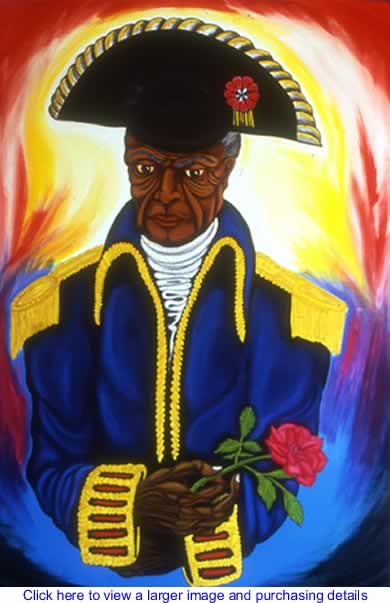US imperialism
Asia-Pacific calls for protests during Obama's visits to Guam, Indonesia and Australia

Statement by the Working Peoples Association (Indonesia), People's Democratic Party (Indonesia), Socialist Alliance (Australia), Socialist Worker (New Zealand), Partido Lakas ng Masa (Philippines), Solidarity (Australia), Labour Party Pakistan, Socialist Alternative (Australia), Socialist Party of Malaysia and the Confederation Congress of Indonesia Union Alliance. Supported by James Petras
[If your organisation would like to add their names to the statement, please email international@prp-indonesia.org.]
March 8, 2010 -- We, the undersigned progressive, anti-war, anti-neoliberalism and anti-imperialist organisations in the Asia-Pacific region, call for a wave protests to meet US President Barack Obama's planned visits to Guam, Indonesia and Australia in March 2010.
Mozambique: ‘The war ended 17 years ago, but we are still poor’

Haiti Emergency Relief Fund: `Haiti needs solidarity, not charity'


By Ram Seegobin, Lalit de Klas
February 8, 2010
Dear leaders of Greenpeace [UK],
We understand that your organisation has taken a position in favour of the British government’s outrageous plan to create a “marine park” on territory which is not its own, thus tricking ill-informed people into supporting the British state on rather vague grounds of “the environment”, while they are in fact banishing the people who lived there and flaunting the Charter of the United Nations.
Venezuela’s revolution faces crucial battles; Chavez: `Towards a communal state!'

By Federico Fuentes, Caracas
February 20, 2010 -- Decisive battles between the forces of revolution and counter-revolution loom on the horizon in Venezuela. The campaign for the September 26, 2010, National Assembly elections will be a crucial battle between the supporters of socialist President Hugo Chavez and the US-backed right-wing opposition. But these battles, part of the class struggle between the poor majority and the capitalist elite, will be fought more in the streets than at the ballot box.
So far this year, there has been an escalation of demonstrations by violent opposition student groups; the continued selective assassination of trade union and peasant leaders by right-wing paramilitaries; and an intensified private media campaign presenting a picture of a debilitated government in crisis — and on its way out.
How credible is Human Rights Watch on Cuba?

Human Rights Watch does not see the US blockade of Cuba as a human rights abuse.
By Tim Anderson
Reconstructing Haiti: Time to break with foreign interference

By Regan Boychuk
January 26, 2010 -- Haitians’ incredible plight has always been difficult to fully appreciate. Then the earthquake struck: hundreds of thousands dead, hundreds of thousands more hurt, a million homeless, and two million in need of food. It defies imagination.
And according to a journalist just returned from Haiti, even the heart-rending footage we’ve seen here on television fails to “portray the magnitude of the tragedy that has happened – and the degree to which the Haitian people are suffering. When looking at images from the disaster,” writes Steven Edwards, “we need to multiply by ten times our reaction of horror – only doing that can give you a true picture of what is going on in a place that has become hell not far from our shores.”[i]
The challenges facing 21st century socialism in Venezuela

Interview with William I. Robinson, professor of sociology, University of California at Santa Barbara, by Chronis Polychroniou, editor of the Greek daily newspaper Eleftherotypia
February 1, 2010 -- ZNet
Chronis Polychroniou: There are scare stories coming from Venezuela. The border is heating up, infiltration is taking place, a new Colombian military base near the border, US access to several new bases on Colombia and constant subversion. Is the regime concerned about a possible invasion? If yes, who is going to intervene?
John Bellamy Foster: The crisis of capital: economy, ecology and empire
From pdxjustice Media Productions on Vimeo.
Professor of sociology and editor of Monthly Review, John Bellamy Foster, talks about the triple crises in the economy, the environment, and the imperial wars and occupations in Iraq, Afghanistan and beyond..
Honduras: Obama's new puppets on display; Massive demonstration as Lobo takes power

By Felipe Stuart Cournoyer, Managua
January 26, 2010 -- During the dubious Honduran election process leading up to voting day on November 27, 2009, the people would chant “Santos[1] de santo no tiene nada. Lobo de lobo lo tiene todo” ["(Elvin) Santos gets nothing from the saints; Lobo’s taken it all from the wolf.”]
Haiti: A history of struggle and exploitation
By Amanda Zivcic
January 23, 2010 -- Since the earthquake struck Haiti on January 12, 2010, there has been a global outpouring of support. Many people, horrified by the scenes of sheer devastation, the astronomical death toll and the struggle of survivors to gain access to medicines, food and shelter, are left wondering: why so many?
The oft-repeated tag of Haiti being “the poorest nation in the Western hemisphere” is true but this did not just happen. It is the result of a history of colonialism, slavery, imperialism, foreign military intervention, foreign-imposed dictatorships and unjust debt.
The Caribbean nation’s indigenous people were all but wiped out by 1520 due to the disease and exploitation that came with the arrival of the Spaniards in 1492. After France and Spain divided the island of Hispaniola into Haiti and the Dominican Republic, French and Spanish settlers arrived.
Fidel Castro on Haiti: Cuba `sends doctors, not soldiers'
By Fidel Castro Ruz
